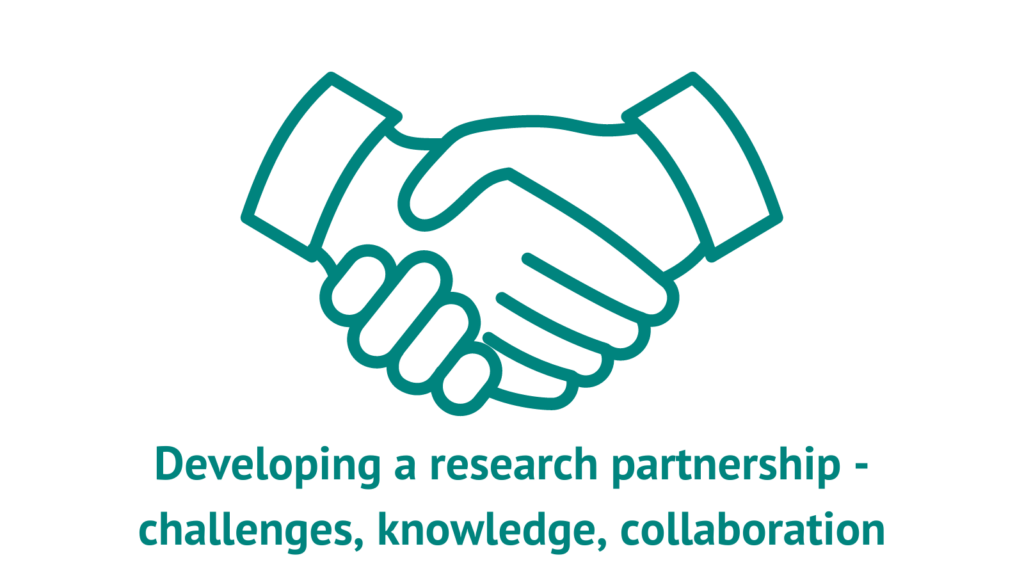A chance to develop a research partnership
20 June 2023
inclusioninvolvementResearch
This is the second in a series of blogs by Peter Beresford about a research project which Shaping Our Lives has carried out jointly with King’s College London. You can also read a report we have written about the project, Match Making In Research.
Something special
This is a story about a research collaboration; a collaboration between a university and a service user led/disabled people’s organization or what people call a ULO or DPLO – a disabled people led organisation. This may not seem a remarkable event, perhaps nothing to write home about. But I would suggest it is worthy of note and of looking at more closely for at least four big reasons.
- First, such collaborations aren’t actually very common and frequently go wrong.
- Second, they are important because they challenge many of the divisions that can have damaging effects for us all in society, by privileging what some people know and devaluing the knowledge of others.
- Third, there are likely to be more such partnerships with all the talk of user involvement and coproduction – or at least there should be.
- And, fourth and finally, because of the growing recognition that if we don’t find ways to include people’s different understandings and perspectives in finding things out and creating knowledge, then we will only ever get a partial, biased picture that may never tell us the whole story and also discriminate against some people.
A great opportunity
This was a research collaboration between Shaping Our Lives, the national user led organization committed to increasing the say and control of disabled people and service users and the Nursing School at King’s College London, a leading British research university with an interest in working more closely with service users and our organisations. We were very lucky, we managed to get funding for a collaborative project from the government funder of social science research the Economic and Social Research Council. More to the point, this was a source of funding reserved for such collaborations, in this case between an academic and service user organisation – and there aren’t many such special pots of money.
It was a great opportunity and looking back I think we all worked hard to make the most of it. Of course, it wasn’t all plain sailing – we are talking about human beings here, not people with super powers – but in my opinion we have all learned as much from what didn’t work out, so well as what did. And like all good research we did learn many new things.
Building knowledge
You can read about the project in much more detail in the full report which Shaping Our Lives has produced, Match Making In Research, but hopefully here you can get a picture in bite-sized chunks that puts it in its broader context. This is the context of disabled people’s and social care service users’ efforts to develop our own knowledges and undertake our own research in a world where historically other people have often shaped these things for us, not necessarily in our best interests. They have decided who we are, what we are capable of, often making really big decisions that can affect us badly. If there is one thing we know from the development of ‘new social movements’ based on who people are and the discriminations that they face, like the women’s, Black and minoritized people’s and LBGTQ+ movements, it is that people really want to decide for themselves who they are and what they want in life.
In the project’s report, we call our collaboration ‘partnership working’. That report shares the learnings about partnership working between Shaping Our Lives and King’s College London. The guide focuses on the challenges of this type of partnership and how to make the most of the opportunity of bringing a user-led organisation and university research team together to complete a research study.
Not surprisingly, the project raised all kinds of issues for all of us involved – disabled people and service users, academics and researchers – and those sharing both identities. The aim of this blog series is to try and think through the learning we all gained from this experience so it can be helpful to others making similar journeys. Obviously, circumstances are likely to vary; different projects and people will doubtless encounter different issues and problems, but we need to build knowledge about these developing roles, relationships and activities, without being prescriptive. That is our aim here and we’ll up the thread in the next blog.
Read the first blog by Peter Beresford.
Peter Beresford is a long term user of mental health services, Co-Chair of Shaping Our Lives and Visiting Professor at the University of East Anglia
